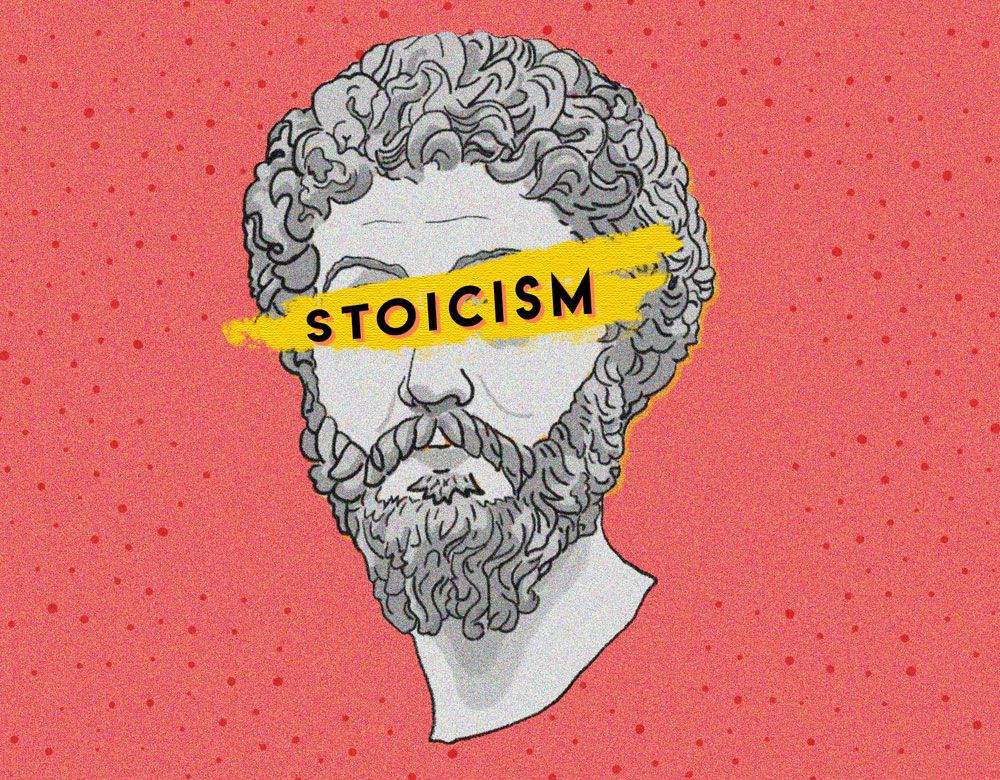Breakfast Notes #5 (Lessons From The Departed)

Good morning friends. This day in 1764, English Historian, Edward Gibbon observes a group of friars singing in the ruined Temple of Jupiter in Rome. Their singing must have moved him so much that he began his magnum opus, The History of the Decline and Fall of the Roman Empire.
- This should be a reminder to you that today could be the first day you start creating the best work of your life. Thinking of starting something new and still hesitating? Don't.
- Quote of The Day. “War, in its fairest form, implies a perpetual violation of humanity and justice.” - Edward Gibbon on War.
Today's stories are my reflections about those who have passed before us. I hope it will encourage you to be a better human.
#1: Rowing Against The Current With Karl Marx 🚣♀️

学如逆水行舟,不进则退.
“Learning is like sailing against the currents, a failure to advance is akin to regression.”
This Chinese proverb holds a grain of truth. Learning takes cognitive effort, consistency and time. However, whoever said learning cannot be enjoyable?
To sail against and overcoming the currents is incredibly gratifying. It has been five months since I graduated from Lee Kuan Yew School of Public Policy. However, I have been taking the time out of work to learn about the history of Western Philosophy, from Plato to Foucault.
I have been enjoying this lecture series by Professor Michael Sugrue from Ava Marie University.
Each lecture is forty-five minutes and has no camera cuts or fancy PowerPoint slides. It is just a video of Professor Sugrue explaining the significance of each thinker and their respective contributions. Yet, his delivery and content is world-class and timely. When the video finally fades out, you can feel your mind physically yearn for more.
Here is a sample of what I learnt.
The Greatness of Karl Marx

I disagree with Marx categorically. Yet, I must acknowledge Karl Marx was an intellectual heavyweight of his time.
For me, his ingenuity lies in his boldness that sought to integrate and synthesize three disparate (and often conflicting) intellectual traditions into his own thinking- Marxism.
This is what he borrowed from each tradition.
- English Skeptical Empiricism. Marx was steeped in the work of Adam Smith, David Hume, or John Locke and was able to appreciate their methods. The English intellectual tradition had a focus on 'this world'. They avoid metaphysics, mysticism and mythology. If society is an organism, one must study it like how a scientist would and not look to God for answers.
- The Hegelian Conception of History. The idealism of Hegel posited that ideas (or the Zeitgeist) would shape history. Hegel believed that human history had a purpose which was to achieve the global realization of human freedom. Marx was a critic and a follower of Hegel. He took Hegelian's theory of the world and flipped it on its head. Marx believed that history would shape ideas. For example, If one justified slavery, it was because his personal history of exploiting slaves for his benefit led him to believe that slavery was inherently beneficial.
- French Utopian Socialism. Marx believed the French were right in their instinct that society was capable of radical revolution and utopia could be achieved.
He was well-aware of the failures of the different French Revolutions and his diagnosis was that they had no science and no method to their road to enlightenment. As such, he believed by integrating their Utopian instincts with the Hegelian Dialectic and English rationality, he could formulate a game plan for utopia.
The track record of Marxism in implementation is the #1 reason why clips like "SJWs get triggered" or "Watch This Radical Marxist Get DESTROYED" even exist.
However, without Marx criticizing the evils and exploitations of capitalism, many urgent reforms would have been omitted and we would have seen even more people suffer needlessly.
In Sugrue's words, "The Welfare state is a homage to Marx"
The Key Takeaway. This short little paragraph is an object lesson on 'nuancifying' things. Nuancifying is simply acknowledging life is more like a technicolour film than film noir. For someone like Karl Marx, he is either evil personified or the saviour of the masses. However, the truth is ... he was just a German thinker, who was often too drunk for his own good, who nailed the problems of capitalism right on the nail but prescribed solutions that were unfortunately way worse than the problems.
To take an absolutist stance is like flowing with the current of your tribe but remember what is learning like again?
#2: The Ideal Eulogy💻

The Stoics always said 'Memento Mori', a symbolic reminder of the inevitability of death. This ritual of reflection on mortality would spur people to wise words and good works.
For some reason, this practice never clicked with me.
It felt too distant and impersonal for a young and healthy man like me.
Enter Patrick Winston
On a nondescript day, I was just casually browsing the MIT OpenCourseWare site on Youtube. There was this interesting video entitled, "How To Speak by Patrick Winston" which had over 4.5 million views
As I scrolled through the comments, I saw a memorial site for this warm and incredible man. I did my due diligence and read up as much as I could about him. A pioneer in Artificial Intelligence and a director of the MIT Artificial Intelligence Lab, his career was impressive.
Yet, it was the man that impressed me more.
I would like to share some eulogies that moved me to his memorial site.
Working to unlock the mysteries of the human mind - Maithilee Kunda
Like many, I can say without exaggeration that Patrick's teaching changed my life. I especially credit 6xxx with inspiring me to pursue a career in AI and cognitive science. I still remember how he would pace about and exclaim, with so much excitement, "In AI, we are working to unlock the mysteries of the human mind!"
I remember once in 6.034, he started out a lecture by asking us, "Has anyone here ever bagged groceries?"
One student in the back raised his hand, and Patrick asked him, "Can you tell us what you're supposed to do?" And the student described a bit about heavy stuff on the bottom, light things on top, and also cold stuff altogether. And then Patrick asked him, "And why do you do that, keeping the cold stuff together?" And the student said, "Because the cold stuff...keeps the other cold stuff cold?" And we all, including the student himself, laughed as he sheepishly trailed off in his reply because while it was such an intuitive and obvious answer (that probably any of us would have given without a second thought!), in that moment, sitting there in the lecture hall, we all suddenly saw how silly that answer was (as we all were, no doubt, only a few semesters removed from our first-year physics classes on thermodynamics and heat transfer).
For the next few minutes, Patrick pushed us all to try to figure out why it was that "the cold stuff keeps the other cold stuff cold." The answer, in the end, had to do with reducing the total surface area of the cold stuff, and we went on to talk about different kinds of reasoning about how the world works. More than just the specific topic, it was such a great example of how Patrick could take the simplest of everyday occurrences and turn it into an utterly fascinating and thought-provoking lesson.
A Masterful Storyteller - Manish Bahety
I remember watching How To Speak by Patrick Winston on YouTube one night. I have never met Professor Winston but he left a deep impression on me in that one hour. I have come back to many more of Professor Winston's lectures since then. His unbounded curiosity, passion, humility and humour shines brightly through all the work he has left for us to enjoy and admire forever.
MIT Embodied - Jonathan Goler
As an undergrad, I enjoyed 6034, but the real magic was 6.XXX; I wasn't an early riser in general, but always arrived early for the 8AM invigorating conversations with Winston, and learning not only about AI (real AI, not the brute force bulldozer of the current "AI Craze"), but communication, life, and philosophy. It was learning in the most intimate setting, and led to more curiosity and discovery.
Getting to know you - Caitlyn Frazier
When I first started interning with Patrick, I asked him what he preferred to be called. He replied:
You can call me whatever you find comfortable.
Here are some examples:
If you were an MIT student the greeting could be, Hey!
If you were my mom, Patrick
If you were my daughter, Dada
If you were confused, it could be, Winston
So there are lots of possibilities.
Patrick
I miss his subtle and subversive sense of humour. Patrick was one of the first people to listen to my crazy ideas and say, "Yeah, let's give that a try." I'll forever be grateful for his guidance, support, and notable conversations with him.
Ernest Hemingway once said,
Every man's life ends the same way. It is only the details of how he lived and how he died that distinguish one man from another.
Patrick Winston was a stranger to me. After spending a few hours with him online, Patrick Winston is now an inspiration to me.
From now on, when I feel lazy and unmotivated, I remember these two words, "Patrick Winston"
#3: A Rainbow After The Storm🌈

In the past month, a Linkedin connection of mine, Damien posted an announcement about his illustrated picture book.
No, it was not another humble brag or subtle flex that has been so characteristic of Linkedin culture.
No, it was not a call for people to buy his book.
It was a bereaved parent pouring his heart out. It was the story of Noah, his son, and his adventures on earth narrated by his parents. Noah was diagnosed with Trisomy 13, a rare genetic disorder and passed on 8 hours of birth.
- Trisomy 13. Trisomy 13 involves multiple abnormalities, many of which are life-threatening. More than 80% of children with trisomy 13 do not survive past the first month of life. Those who survive may suffer complications ranging from severe intellectual disability, increased risk for cancers, heart failure and breathing difficulty.
Trisomy 13 is not inherited and result from a random error during the formation of eggs or sperm in healthy parents.
What To Do When Life is Unfair

In the face of such baffling suffering, how should one respond?
The book of Jobs, detailing the endless suffering of a man in the Bible, offers a multitude of responses that I think reflect the variety of viable responses.
- Become Bitter. Job’s wife, seeing the extremity of his loss (and, presumably, hers as well), tells him to give up. Jobs 2:9 - she says, "Curse God and Die!"
- Blame Yourself. The majority of the Book of Job, chapters 3-31, are composed of a series of speeches by Job and his three friends. They ask him that surely you must have done something wrong right!
- To continue resolutely. Job 2:10 says "Comforts and calamities come from the hand of God. This rock-solid confidence in the sovereignty of God Job will not relinquish — and neither should we!" Whether you are Christian or not, Job's spirit was admirable. He refused to become cynical and remained hopeful in his anguish.
Like Viktor Frankl once said,
“If there is meaning in life at all, then there must be a meaning in suffering. Suffering is an ineradicable part of life, even as fate and death. Without suffering and death, human life cannot be complete.”
To find purpose in the pain and to remain untainted by cynicism, I believe is the noblest.
So when Damien and his wife decided to launch the book to raise funds for the NUH Children’s Liver and Rare Diseases Fund while sharing the message of hope and love for financially disadvantaged families with children who have rare conditions. I could not help but be moved.
Damien and his wife were vulnerable yet strong, grieving yet hopeful and charitable while recovering.
To quote Damien,
Your experience and compassion can heal others - what we do here never ends and when our little angels, in the constellation of stars in the sky see us working in the garden, they will be so very proud.
The Key Takeaway. If you have the means, please consider donating here. Medical treatment for such diseases can be expensive. It is likely despite government support and insurance, there will be patients who struggle with financial difficulties. By giving, you help ensure no child gets left behind in getting the critical care they need.
Before I go,
If you still don't believe me about #1? Here are some comments from other viewers,
✅ “An amazing lecture, such clear insights. I found Kierkegaard really hard to read but this lecture is helping me make sense of it!”
✅“Amazing. Your passion for these subjects and ability to relate/ make accessible their most important lessons is a gift.”
✅“Your teaching is captivating and demands reflection.”
Remember to send some love to your loved ones.
Grateful for each of you,
Keith